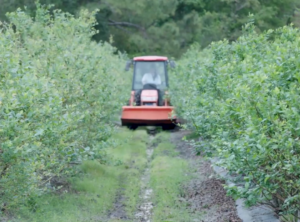
Toxic PFAS, referred to as “forever chemicals,” have been ravaging farmland and wildlife across the U.S. according to a recent video aired by CNN, leaving farmers to pick up the pieces. Our colleague Dan Levy, lead scientist at the global engineering firm AECOM, brought this story to our attention, commenting “the human toll is gut-wrenching and it’s a stark wake-up call to the broader ramifications of the crisis … it’s evident that immediate action is needed.” The biggest problem is that for decades the Department of Environmental Protection approved many PFAS-rich materials, such as sewage sludge, for use as fertilizers and ensured farmers they were nontoxic. Now millions of acres of farmland across the U.S. may be contaminated and countless farmers are being stripped of their livelihoods in the process.
PFAS are man-made chemicals found in anything from plastics to non-stick pans to water-resistant fabrics. The problem with these inorganic compounds is they do not naturally decay, and they cause irreparable damage to ecosystems and humans, having been linked to numerous cancers, organ diseases, and birth defects. Our communities are littered with PFAS from countless sources, and as such, our runoff and waste contain high amounts of the toxins as well – including the sewage we turn into biosolids. Currently, many municipalities still outright encourage farmers to use sewage sludge as fertilizer, with 31% of all biosolids in the nation being applied to farmland, and 28% reaching home gardens. Maine is the only state to ban the use of biosolids so far, and they have even dedicated $100 million in farmland trust funds to help farmers test for PFAS in their soil and animal products and relocate if need be.
But Maine cannot continue to carry this responsibility on its own. From farmers on up through the regulatory rankings, everyone seems to be looking to the federal level for guidelines concerning PFAS. The FDA has tested nearly 800 food samples on the U.S. market, finding no detectable levels of PFAS in most of the samples collected. The EPA has also released drinking water recommendations with a zero-tolerance policy on PFAS, but there is no established limit in waste facilities that are still pumping biosolids to farms across the states. According to the EPA, the official risk assessment on PFAS and biosolids should be finished by the end of 2024, which will help urge regulations in the right direction. For now, the USDA, FDA, and EPA are trying to coordinate efforts across federal agencies and state governments to further understand this issue and lead America’s farmland back to greener pastures.

